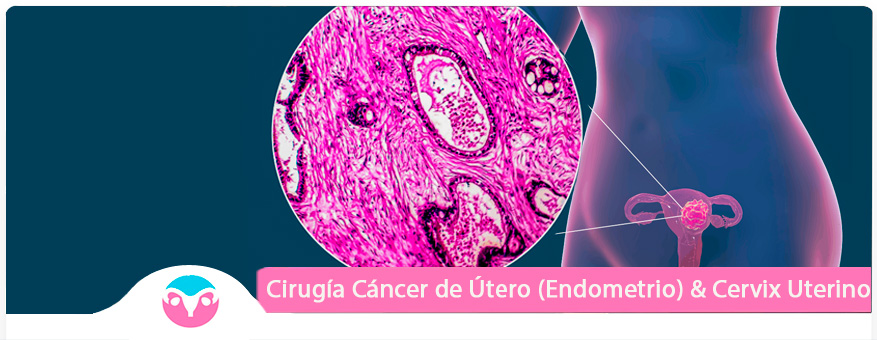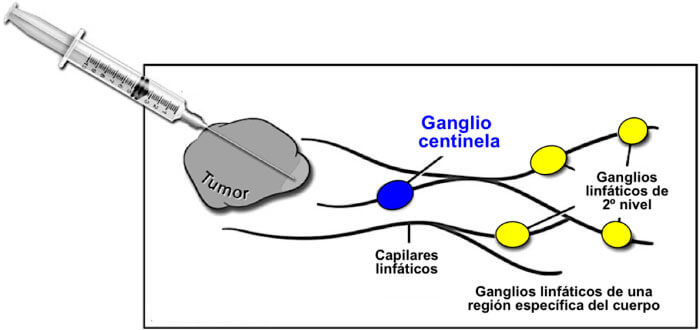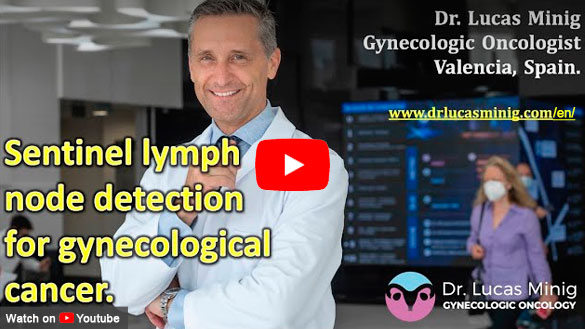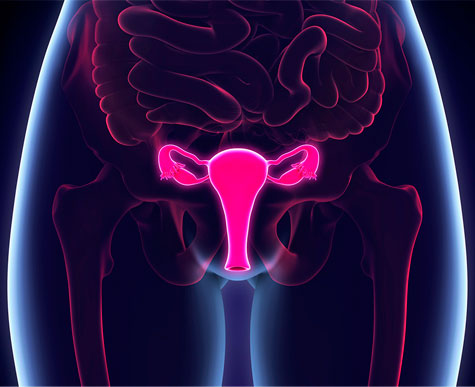
Surgical Treatments For Uterine Endometrial and Cervical Cancer
Request a quick appointment with the specialist in Cancer of the uterus (endometrium) and cancer of the uterine Cervix, Dr. Lucas Minig, Gynecologist Oncologist expert in treatment and surgery in the city of Valencia.
Appointment: Click to Request an Appointment for ovarian cancer in Spain or International.
Surgery for Uterine Cancer
Uterine (endometrial) and cervical cancer surgery have evolved substantially in recent years. Nowadays we use minimally invasive laparoscopic and robotic surgery in almost all cases. It is also often necessary to remove the pelvic and abdominal lymph nodes.
In recent years, investigations have been carried out regarding uterine cancer surgery and it has been concluded that a sentinel lymph node biopsy can be performed (between 1-3 lymph nodes), reducing surgical morbidity.
When is surgery for endometrial cancer recommended?
Surgery for endometrial cancer is often the main treatment when a woman has endometrial cancer.
Other treatments such as chemotherapy and/or radiation can be offered depending on the stage and development of cancer that the patient has. These are used when there is a contraindication for surgery.
In very selected cases, in women who want to become mothers, surgery can be postponed for a certain amount of time, and use other fertility-sparing treatments.
What specialists perform surgery for endometrial cancer?
Surgery for endometrial cancer always has to be performed by a gynecologic oncologist. It must be carried out by a specialist to guarantee an adequate process from the diagnosis until the postoperative.
To this effect, Dr, Lucas Minig (See Biography) has more than 20 years of experience and is a specialist in high complexity gynecologic surgery, which comes with great comfort and is an advantage for women.
Uterus Cancer Specialist
Surgical procedures to treat uterine (endometrial) and cervical cancer
Surgical Procedures to treat Uterine Cancer and Cervical Cancer
Radical Hysterectomy Procedure: It is performed in women with cervical cancer in its early stages. Radical hysterectomy is the removal of the uterus with part of the surrounding tissue (parametrium) close to the bladder, the rectum, and the pelvic wall.
This procedure is followed by the removal of pelvic lymph nodes (pelvic lymphadenectomy). This is a high complexity surgical procedure that has to be performed by gynecologic oncologists with enough training to minimize the complications of the procedure.
Pelvic organs, as well as other organs of the body, are innervated by autonomic nerves. This means that they are nerves that our consciousness cannot control and whose function is controlling rectal and bladder emptying, as well as generating orgasms during sexual intercourse
During a radical hysterectomy, when sectioning the tissue surrounding, the autonomic nerves can be sectioned involuntarily because they are very delicate.
However, the nerves can be preserved with a careful surgical technique, reducing the possibility of post-surgical complications
Radical hysterectomy is a procedure that we perform routinely through minimally invasive laparoscopic surgery.
Procedure Sentinel lymph node identification: the sentinel lymph node is the first lymph node in a specific body region that receives the metastasis coming from the tumor. To identify and remove it, a dye is injected into the cervix of the uterus that migrates to the pelvic sentinel lymph node.
Afterward, we proceed to its identification and removal by minimally invasive laparoscopic surgery. There are often between 1 and 3 lymph nodes, instead of the 15-20 lymph nodes that we usually take out when we perform a complete extraction of pelvic lymph nodes (pelvic lymphadenectomy).
The main advantage is to significantly reduce the morbidity and complications associated with the procedure.

Is It Always Necessary To Remove The Ovaries When Treating Uterine Cancers?
Good scientific evidence exists today to confirm that the extraction of the ovaries is not necessary when performing a hysterectomy for cervical cancer in premenopausal women
However, in some patients with endometrial cancer, the ovaries need to be removed in young women. But, in any case, the clinical situation of the patient must be individualized to decide whether or not to remove the ovaries.
How long do I have to stay in the hospital?
Usually, if there are no post-surgical complications, the hospital stay is just one day long. However, in some cases, the patients can be discharged on the same day of the surgery.
During the hospital stay, every patient will be evaluated by Dr. Minig to oversee her recovery until hospital discharge.

Is movement restriction necessary after the surgery?
Today, no scientific evidence supports that free movement after laparoscopic hysterectomy increases the possibility of post-surgical complications. Therefore, patients can go back to their daily activities and movements carried out before the surgery, progressively as the pain allows them to do so.
It is possible that after endometrial cancer surgery there is light bleeding or spotting up to six months after the intervention. If there is abundant or prolonged bleeding, it is advisable to consult with a specialist. Regarding sexual intercourse, it can be resumed around 6-8 weeks after surgery.
Are there risks after uterine cancer surgery?
Uterine cancer surgery does not often develop complications when a hysterectomy is performed. However, some secondary effects can appear such as:
– Fever.
– Urinary incontinence.
– Continuous and abundant bleeding.
– Difficulty urinating.
Other (less common) complications might be:
– Blood clots in the legs and/or lungs
– Lesions in organs such as the bowel or bladder.
– Haematomas.
– Infection.
If these unusual symptoms appear, you should contact the specialist as soon as possible.
How are surgical wounds taken care of after surgery?
Request a Second Medical Opinion
Frequently Asked Questions about Surgery for uterine cancer
How is the operation for uterine cancer?
The main treatment for endometrial cancer is surgery to remove the uterus and cervix. This operation is called a hysterectomy. Total or simple abdominal hysterectomy is the procedure in which the uterus is removed through an incision (cut) in the abdomen.
What do they take out when you have uterine cancer?
Hysterectomy. The uterus and cervix are removed when a hysterectomy is done Hysterectomy is the most common way to treat cervical cancer. There are many ways to do this surgery. Sometimes the ovaries are removed at the same time.
When can the uterus be removed?
Generally, they respond to a diagnosis or reasonable suspicion of malignant diseases, such as endometrial or cervical cancer. In these cases, it is common to perform extirpation, but it is also opted for in the case of some benign diseases that can pose certain risks.
Opinions from patients with uterine (endometrial) cancer
Doctor Lucas Minig Specialist in Surgery for uterine cancer in Valencia, Spain
WE WORK FOR YOUR HEALTH

SPECIALIZED TREATMENTS

CONTROL AND DIAGNOSIS

MAXIMUM TECHNOLOGY

Contact the uterine cancer specialist
Leave us your data and consultation to offer you personalized medical advice
International Consultation
If you want remote medical care, you can consult
through the following links:
International Appointment
Online Consultation
Whatsapp: + 34 679 112 179







